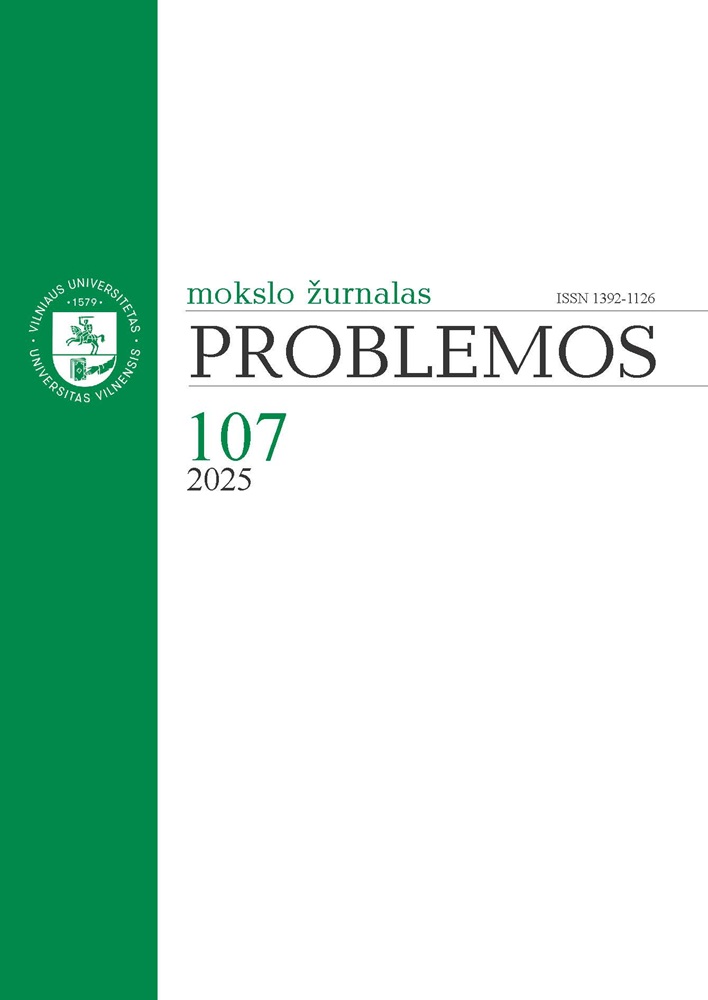Abstract
The article examines the history of the translation and interpretation of Epicurean philosophy sources in Lithuania during the 20th and 21st centuries. In the independent Republic of Lithuania, no censorship institution could interfere with the translation and study of a thinker who taught an atomistic understanding of reality and denied divine providence. However, in practice, it seems that no one took up this task. After the occupation of Lithuania in 1940, translators and researchers were legally prohibited from engaging with any philosophical texts that seemed inconsistent with the officially mandated philosophy of Marxism-Leninism. Epicurus’ atomism and his proclaimed aim to liberate people from the fear of gods made him a potentially suitable author. Nevertheless, the first translations of texts by Epicurus were only published in 1977. By 1990, the ideological censorship had finally loosened its grip, yet the translations and studies of Epicurean philosophy sources in the Lithuanian language have hardly increased.

